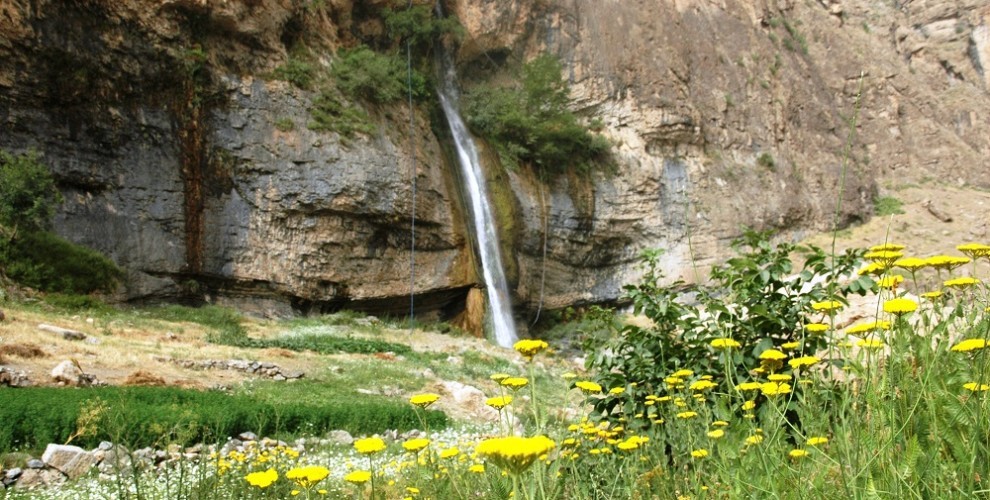Desperate state declares waterfall in Hakkari a ‘prohibited zone’
Hakkari's Kehê Waterfall - a popular attraction to thousands of native and foreign visitors yearly - has been added by the Turkish state to the list of 'prohibited zones'.
Hakkari's Kehê Waterfall - a popular attraction to thousands of native and foreign visitors yearly - has been added by the Turkish state to the list of 'prohibited zones'.

Driven desperate by its war waged on Kurdistan, the Turkish state resorts to measures beyond sanity.
Having declared all highlands and rural areas in Hakkari city and its districts as 'prohibited zones', the Turkish state took away the source of all the local people's daily bread, as they are prevented from carrying on stock farming, as well as from benefitting from the highland's seasonal gifts of nature.
The waterfall of Kehê of the eponymic village 15 km away from the city center, has been added to the long list of 'prohibited zones'. Measuring 15-20 metres high, the Kehê waterfall unfolds its beauty to the fullest in the spring and summertime, and welcomes thousands of visitors yearly.
HAKKARİ IN FUSE WITH THE RANGE OF MOUNTAINS
Hakkari's nature excels with its preserved history and nature, which people learned to adore throughout history due to the spectacular scenery of grand mountains, valleys, rivers and lakes. Known as the city of mountains, Hakkari preserved its uniqueness by a non-disrupted original way of life of its inhabitants, and resembles a paradise as it is in fuse with a mountainous surrounding.
The beauty of the city drew many invaders in the course of history. It is out of question that the moment Hakkari's scenery and extraordinary geography gets unveiled thoroughly, that the region will be flooded by tourists.
A PARTICULAR POLICY ON HAKKARI
Even though the geography and nature of Hakkari is being compared with that of Switzerland, deliberately waged policies of oppressions on the part of the Turkish state have pushed the city into the background of attention away from the place it deserves. For that reason, thousands of people travel to places like Swiss for its name as a country of cities in mountains, while Hakkari - known as the Switzerland of the Middle East - receives very little touristic attention.
The state pulled out all the stops to keep its development down, but nevertheless the mountains, valleys, lake and waterfalls still overwhelm with awe. The waterfall of Kehê still preserves its beauty regardless of the state's prohibition.
THE PEOPLE ARE INDIGNANT AT THE PROHIBITIONS
Normally thousands of people used to visit Kehê Waterfall at spring and summertime, either for picnic or climbing activities. Some dozens of climbers also used to climb up each year the 60 metres slope of the waterfall of Kehê. But the prohibition filled the place with gaping emptiness.
The inhabitants of Hakkari stated they will never change their habit of visiting the site of the waterfall of at least one time in a week, and commented on the prohibition as follows:
"The state had put this place also in the past on their list of 'prohibited zones' but it didn't bring them anything at all. What they reap is only the hatred of the people. We are one with our nature, and we will be drawn to our nature the more when they continue their prohibitions. As our ancestors didn't give up on their land, we will neither. The state has to back off from such false hopes, because they cannot get anything by prohibiting our nature."